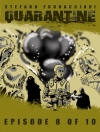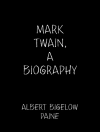A writer is offered a devil’s bargain: will he give up reading books in exchange for total world domination?
A certain writer (‘past sixty, enjoying ‘a certain renown ») strolls through the old book market in a Buenos Aires park: ‘My Sunday walk through the market, repeated over so many years, was part of my general fantasizing about books.’ Unfortunately, he is suffering from writer’s block. However, that proves to be the least of our hero’s problems. In the market, he fails to avoid the insufferable boor Ovando—’a complete loser’ but a ‘man supremely full of himself: Conceit was never less justified.’ And yet, is Ovando a master magician? Can he turn sugar cubes into pure gold? And can our protagonist decline the offer Ovando proposes granting him absolute power if the writer never in his life reads another book? And is his publisher also a great magician? And the writer’s wife?Only César Aira could have cooked up this witch’s potion (and only he would plop in phantom Mont Blanc pens as well as fearsome crocodiles from the banks of the Nile)—a brew bubbling over with the question: where does literature end and magic begin?
A propos de l’auteur
CÉSAR AIRA was born in Coronel Pringles, Argentina in 1949, and has lived in Buenos Aires since 1967. He taught at the University of Buenos Aires (about Copi and Rimbaud) and at the University of Rosario (Constructivism and Mallarmé), and has translated and edited books from France, England, Italy, Brazil, Spain, Mexico, and Venezuela. Perhaps one of the most prolific writers in Argentina, and certainly one of the most talked about in Latin America, Aira has published more than 100 books to date in Argentina, Mexico, Colombia, Venezuela, Chile, and Spain, which have been translated for France, Great Britain, Italy, Brazil, Portugal, Greece, Austria, Romania, Russia, and the United States. One novel, La prueba, has been made into a feature film, and How I Became a Nun was chosen as one of Argentina’s ten best books. Besides essays and novels Aira writes regularly for the Spanish newspaper El País. In addition to winning the 2021 Formentor Prize, he has received a Guggenheim scholarship, and was shortlisted for the Rómulo Gallegos prize and the Booker International Prize.











